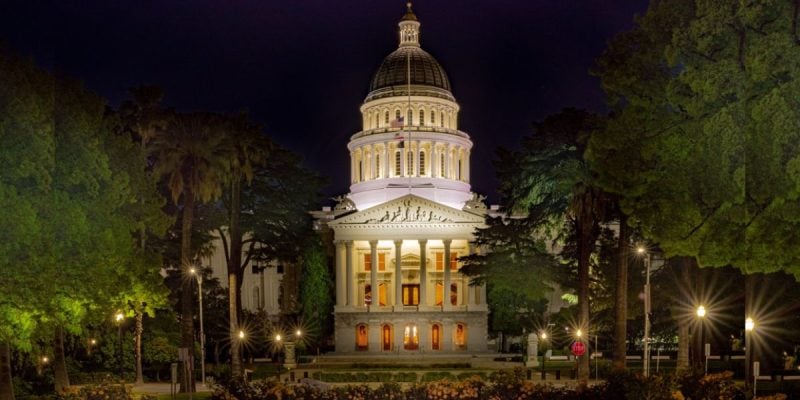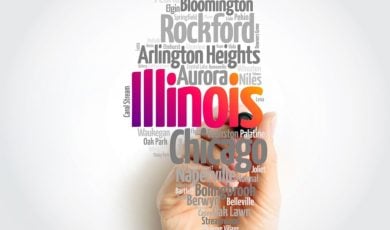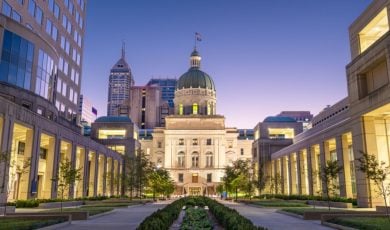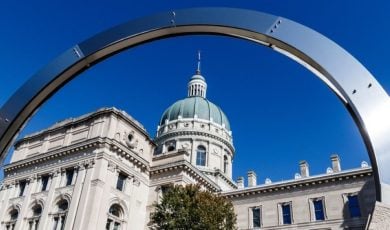A bill that would ban sweepstakes casinos in California passed the state Senate in a unanimous, bipartisan 40-0 vote. The bill, AB 831, will now move to the Assembly for consideration. If approved there, it will go to Gov. Gavin Newsom for his signature.
The development in California comes amid a broader effort by states to either regulate or ban sweepstakes casinos.
Assemblymember Avelino Valencia introduced the bill in June, offering remarks that reflect the general sentiment among opponents.
“Many of these ‘sweepstakes’ operators are based offshore and function without proper oversight, avoiding requirements like consumer protections, responsible gaming safeguards, background checks, and tax compliance,” Valencia said. “We cannot look the other way while these platforms exploit legal grey areas.”
California sweepstakes casino ban poised to pass Assembly
Based on the Senate’s unanimous, bipartisan vote, it’s likely that the Assembly will also pass the ban. If it reaches Newsom’s desk, it will probably become law. Newsom has a record of supporting measures that limit gambling in California.
Some of that support stems from his relationship with the dozens of federally recognized tribes that operate gaming facilities in his state. Newsom has been an outspoken advocate of tribes, issuing an apology on behalf of the state for its treatment of Native communities and calling for the return of tribal land.
“This work is a down payment on the state’s commitment to do better by the Native American communities who have called this land home since time immemorial,” he said in 2024 when announcing the return of about 2,800 acres to the Shasta Indian Nation.
“By listening to and working with tribes across the state, including to return ancestral homelands and restore the environment, we are healing deep wounds and rebuilding trust between our people.”
Sweepstakes casinos pose a threat to tribal gaming revenue. Accounting firm KPMG estimates they will generate $4.6 billion in net revenue this year. While exact figures for California are unclear, the industry’s footprint is significant enough to divert revenue from tribal casinos.
Additionally, 90% of users view sweepstakes platforms as gambling sites, putting them in direct competition with tribal gaming.
Tribal pushback faces uphill battle as AB 831 moves forward
Not all tribes support the legislation. The Sherwood Valley Band of Pomo Indians, for example, argues that sweepstakes casinos could serve as a new revenue source. In a letter to lawmakers, the tribe said the bill “cuts off new digital revenue streams” for smaller tribes and puts them at an economic disadvantage.
The Big Lagoon Rancheria tribe also raised objections, writing in a letter that the state failed to meet its obligation to consult with tribes about gaming laws that could affect them.
“AB831 was advanced in the Senate without the meaningful, government-to-government consultation that is owed to all California tribes under both federal and state policy commitments,” the letter stated.
“This approach undermines California’s stated commitments to tribal consultation and erodes trust between California and its tribal governments.”
Still, the pushback is unlikely to change the outcome, given the Senate’s unanimous support.
California ban could shake up US sweepstakes casino industry
If approved by the Assembly and signed by Newsom, the measure would deal a significant blow to sweepstakes casinos. New Jersey banned them in August, a pivotal move for a state that has often been at the forefront of gaming expansion. A California ban would be even more consequential, given its status as the nation’s most populous state.
Even so, such a ban may not spell the end of sweepstakes casinos nationwide. States still have the option of permitting them under certain conditions, such as through tribal operators or casinos with existing land-based or online casino licenses.









